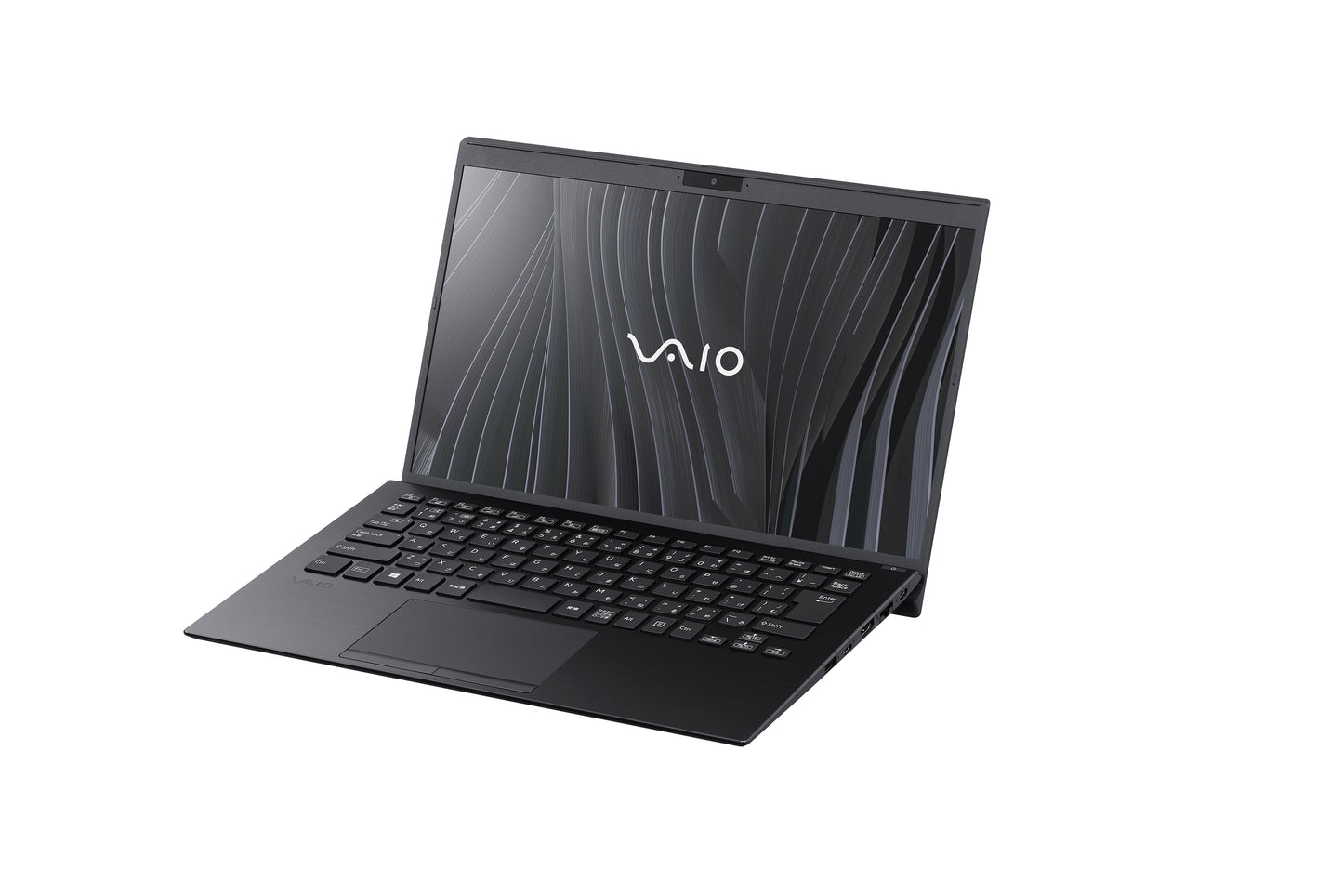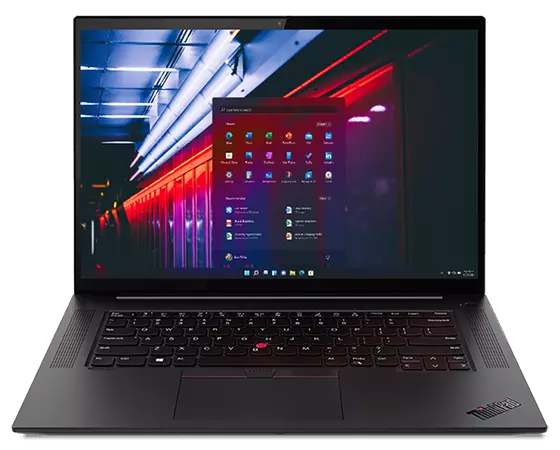This past year, machine learning and AI have taken center stage and revolutionized many industries from healthcare to finance. As these complex algorithms become increasingly integral to our daily lives, the demand for powerful computing tools capable of supporting such advanced computational tasks has never been greater.
Choosing the right laptop for machine learning is about finding a balance between processing capabilities, graphics performance, memory, and storage. The ideal laptop must not only handle large datasets and complex algorithms but also be versatile enough to support various machine-learning tasks. Whether you are a seasoned professional, a student entering the field, or a hobbyist exploring machine-learning projects, the need for a reliable and robust laptop is indisputable.
Essential Features for Machine Learning Laptops
High-Performance Processors
The processor, or CPU, is the backbone of any laptop intended for machine learning. High-performance processors can significantly reduce the time required for data processing and algorithm training. For machine learning tasks, look for the latest generation Intel Core i7 or i9 processors, or their AMD Ryzen equivalents, which offer the speed and efficiency needed for complex computations. The ability to process multiple threads simultaneously is a boon for running advanced machine-learning models.
Robust Graphics Capabilities
Machine learning, particularly deep learning, relies heavily on the graphics processing unit (GPU) for accelerating computations. A laptop with a dedicated GPU, such as those from NVIDIA’s GeForce RTX or GTX series, can vastly improve the speed of training models. GPUs are not just about gaming; in the world of machine learning, they are crucial for handling intensive parallel processing tasks.
Ample Memory and Storage
RAM (Random Access Memory) is another critical component. Machine learning applications often require a substantial amount of memory to function efficiently. A minimum of 16GB RAM is recommended, though 32GB or more is preferable for handling larger datasets and more complex models.
In terms of storage, solid-state drives (SSDs) offer faster data access speeds compared to traditional hard drives. Look for laptops with at least 512GB of SSD storage, or consider models that offer additional slots for storage expansion.
Top 6 Best Laptops for Machine Learning in 2024
(Credit: Vaio)
1. Vaio SX14
Best Overall
The Vaio SX14 is a standout performer, offering the perfect blend of power, efficiency, and portability. Here’s why it’s our top pick:
- Processor and Performance: At the heart of the Vaio SX14 lies the Intel® Core™ i7-1360P Processor, capable of reaching speeds up to 5.00 GHz. This high-end processor ensures swift data processing, crucial for machine learning tasks.
- Graphics Capabilities: Although it features integrated Intel® Iris® Xe Graphics, it provides sufficient power for basic to intermediate machine learning tasks, especially those involving data analysis and less graphic-intensive model training.
- Memory and Storage: With 16GB RAM, it caters to efficient multitasking and smooth handling of large datasets. The 512 GB PCIe SSD offers quick data access and ample storage for machine learning software and datasets.
- Design and Portability: The Vaio SX14 is known for its sleek design and lightweight build, making it an excellent choice for professionals who need a powerful yet portable laptop.
- Display: The 14” FHD IPS Touch Display (1920 x 1080) is perfect for detailed data visualization and coding work, offering crisp and clear visuals.
The Vaio SX14 represents an ideal balance between functionality and portability, making it a top recommendation for machine learning practitioners who value both performance and mobility.

(Credit: Apple)
2. Apple MacBook Pro 16-inch (M1 Max)
The Apple MacBook Pro with the M1 Max chip is a formidable choice for machine learning professionals, known for its remarkable performance and exceptional build quality. Here’s what makes it a top contender:
- Processor and Performance: The M1 Max chip, Apple’s most powerful chip to date, is designed to handle intensive tasks like machine learning and data processing with ease. Its ability to perform complex computations quickly makes it ideal for advanced machine-learning applications.
- Graphics Capabilities: Equipped with a powerful integrated GPU, the M1 Max offers excellent graphics performance. This is particularly beneficial for tasks involving visual data processing and model training.
- Memory and Storage: With the option to configure up to 64GB of RAM, the MacBook Pro is well-suited for handling large datasets and running multiple applications simultaneously. Storage options are equally robust, with up to 8TB of SSD storage available.
- Design and Display: The 16-inch Liquid Retina XDR display provides an expansive, high-resolution workspace with incredible color accuracy, essential for detailed data analysis and visualization.
- Build Quality and Ecosystem: Known for its premium build quality, the MacBook Pro is a durable machine. Additionally, its integration with the Apple ecosystem offers seamless compatibility with other Apple devices and software.
The Apple MacBook Pro 16-inch with the M1 Max chip is an excellent choice for machine learning professionals who require a high-performance laptop with a focus on graphics and processing capabilities.
(Credit: Dell)
3. Dell XPS 15
The Dell XPS 15 is a top-tier laptop that balances performance with versatility, making it a great choice for machine learning tasks. Here are its defining features:
- Processor and Performance: The Dell XPS 15 can be equipped with up to 10th Gen Intel Core processors, providing robust power for demanding machine learning computations. Its fast processing capabilities facilitate efficient data analysis and model training.
- Graphics Capabilities: Offering the NVIDIA GTX 1650 Ti dedicated graphics card, the XPS 15 delivers considerable graphical processing power. This GPU is capable of handling moderate to advanced machine learning tasks, especially those requiring GPU acceleration.
- Memory and Storage: With options for up to 64GB of RAM, the XPS 15 excels in multitasking and managing large datasets. Storage-wise, it supports large SSDs, ensuring quick access to data and smooth performance.
- Design and Display: The laptop features a stunning 15.6-inch display, available in both FHD and 4K resolutions. The display quality is excellent for visualizing complex datasets and models.
- Build Quality and Keyboard: The XPS 15 is known for its premium build quality and comfortable keyboard, making it ideal for long coding sessions and data analysis work.
The Dell XPS 15 is a solid choice for machine learning practitioners who need a laptop with strong processing capabilities, good graphics performance, and a high-quality display.
(Credit: Asus)
4. ASUS ROG Zephyrus G14
The ASUS ROG Zephyrus G14 stands out as a top choice for machine learning, especially for those who require high performance in a more compact form factor. Let’s delve into its key features:
- Processor and Performance: Powered by the AMD Ryzen 9 processor, the Zephyrus G14 offers exceptional computational speed, crucial for processing complex machine learning algorithms and large datasets.
- Graphics Capabilities: It comes with the NVIDIA RTX 2060 graphics card, which is more than capable of handling GPU-accelerated machine-learning tasks. This makes it suitable for deep learning and other graphically intensive operations.
- Memory and Storage: The laptop can be configured with up to 32GB of RAM, facilitating efficient multitasking and smooth handling of data-intensive applications. Its fast SSD storage ensures quick access to files and data, a must-have for machine learning professionals.
- Design and Portability: One of the most notable aspects of the Zephyrus G14 is its compact and lightweight design, making it one of the most portable options in the high-performance laptop segment.
- Display: Despite its smaller size, the laptop doesn’t compromise on display quality, offering a 14-inch screen with high resolution, ideal for detailed data work and coding.
The ASUS ROG Zephyrus G14 is an excellent option for those who need a powerful, portable laptop for machine learning, combining robust processing power with a sleek design.

(Credit: Lenovo)
5. Lenovo ThinkPad X1 Extreme
The Lenovo ThinkPad X1 Extreme is a formidable contender in the realm of machine learning laptops, known for its robust performance and reliability. Here are the features that make it a suitable choice:
- Processor and Performance: Equipped with Intel Core i7 processors, the ThinkPad X1 Extreme delivers the power needed for demanding machine learning tasks. It handles complex computations and data processing efficiently, making it suitable for both training and deploying machine learning models.
- Graphics Capabilities: It includes NVIDIA GeForce graphics, providing the necessary GPU power for machine learning processes that require graphical computation, such as certain deep learning tasks.
- Memory and Storage: The laptop supports up to 64GB of RAM, ensuring smooth multitasking and quick access to large datasets. The inclusion of SSD storage further enhances its performance, offering fast data retrieval and ample space for storing large volumes of machine learning data.
- Design and Durability: The ThinkPad X1 Extreme is designed for durability and resilience, making it a reliable choice for professionals who require a sturdy laptop for their work.
- Display and Keyboard: It features a high-quality display, essential for detailed data analysis and visualization. The keyboard is comfortable and responsive, a characteristic feature of the ThinkPad series, which is beneficial for coding and long hours of data work.
The Lenovo ThinkPad X1 Extreme is an excellent choice for machine learning practitioners who value performance, durability, and a high-quality typing experience in their computing tools.
Maximizing Machine Learning Performance
Once you have selected the right laptop for your machine learning needs, the next step is to optimize its performance. Here are some essential tips and best practices to help you get the most out of your laptop:
Optimizing Software and Tools
- Install the Right Software: Ensure you have the necessary machine learning libraries and frameworks installed, such as TensorFlow, PyTorch, or Scikit-Learn, depending on your specific needs.
- Keep Software Updated: Regularly update your machine learning tools and libraries, as well as the laptop’s operating system, to benefit from the latest features and performance improvements.
- Utilize GPU Acceleration: If your laptop has a dedicated GPU, make sure your machine learning software is configured to utilize it. GPU acceleration can significantly speed up the training of models.
Best Practices for Efficient Computing
- Manage System Resources: Keep an eye on your laptop’s resource usage. Close unnecessary applications to free up RAM and CPU resources for your machine-learning tasks.
- Effective Data Management: Organize your datasets efficiently. Use external storage solutions if necessary to manage large datasets without overloading your laptop’s internal storage.
- Regular Maintenance: Perform regular maintenance on your laptop, including checking for malware, cleaning up unnecessary files, and ensuring the cooling system is functioning properly to prevent overheating.
- Optimize Power Settings: Adjust your laptop’s power settings for maximum performance, especially when working on intensive machine learning tasks. However, be mindful of the impact this may have on battery life.
- Use Cloud Computing for Larger Workloads: For extremely large datasets or highly complex models, consider using cloud-based computing resources. This can take the heavy lifting off your laptop and provide scalable computing power.
By following these tips, you can enhance your laptop’s performance and ensure it remains an effective tool for your machine-learning projects, allowing you to focus on developing and training sophisticated models and algorithms.

